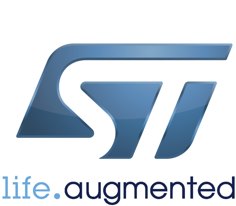
The UKESF is delighted to announce Madhuparna Datta has joined the charity’s board as a Trustee. Madhuparna has worked in the semiconductor industry for over 25 years and has amassed a wealth of experience.
“We’re thrilled to welcome a new Trustee to the UKESF board. Madhuparna brings vast expertise to the role, from the UK and beyond. She has been a supporter of our charity for some time. I’m sure Madhuparna will make a valuable contribution as we continue with our mission to inspire more young people to choose Electronics and address the gender imbalance in our sector.”
Neil Dickins, UKESF Chair of Trustees
Madhuparna is an EDA and VLSI expert who has worked in the UK, India and Sweden. She started off with PCB & FPGA design in Telecom at C-DoT, and then moved to the EDA industry at Cadence Design Systems where she worked across Silicon-Package-Board as well as Digital Design and Implementation product lines. Currently, she is an Application Engineer Director for Cadence, working out of Cambridge.
Madhuparna has mentored many engineers over her career and is keen to inspire the future generation interested in STEM. Her passion for STEM led to a Global Ambassador role for the Society of Women Engineers (SWE) and she founded their first global affiliate in Cambridgeshire.
At the Electronics Weekly Women Leaders in Electronics Awards 2024 Madhuparna was crowned Mentor of the Year and was also a finalist for Leader of the Year & Woman of the Year. She won the Mentoring award at the Cadence Women Conference in EMEA.
“I look forward to strengthening the UKESF board with my VLSI and EDA industry expertise as well as my global leadership within Society of Women Engineers (SWE). I have been a supporter of the UKESF mission of encouraging more young people to study Electronics and there is great alignment with our values and approaches.”
Madhuparna Datta, AE Director, Cadence Design Systems
BrightSparks celebrate some of the best young Electronics Engineers in the UK. The UK Electronics Skills Foundation (UKESF) is delighted to announce nine UKESF Scholars were BrightSparks 2024 winners at the Electronics Weekly Elektra Awards. There were a record number of entries in 2024 so this is an incredible achievement.

The UKESF scholars are a talented bunch but it was Al, Ethan, Hamza, Hazel, Henry, Kenville, Nandni, Nathan and Phillip who were awarded the BrightSparks accolade this year.
Find out more about BrightSparks, and all the winners, here
Spark their imagination; power their future, a new programme for 2024 from UK Electronics Skills Foundation (UKESF) and Compound Semiconductor Applications (CSA) Catapult, has inspired thousands of young people in Wales to study, and start careers, in the thriving field of electronics. Electronics Engineers are in high demand but between 2012 and 2021, the number of Welsh students studying an Electronics and Electrical Engineering (EEE) degree reduced by a third, dropping from 180 to 120. The project also aims to increase the diversity of people entering the electronics industry.

As part of the programme, more than 200 students from schools and colleges across Wales, explored electronics at one of the workshops hosted by leading Welsh universities. The young people attending the events were introduced to the many exciting opportunities of studying and working in the field of electronics.
Spark their imagination also provided free electronics equipment, and resources, to secondary schools to help teachers promote electronics and develop their students’ knowledge. This year, 50 schools in over 35 different towns and cities throughout Wales received a variety of electronics kits. The equipment is reusable and will be used by thousands of students for many years to come.
The project includes the Sparc Award which offers financial support for school and college students who are planning to study electronics-related courses at university. As part of the project, 24 bursaries of £2,500 have been awarded to students who have secured a place at university this autumn.
At the workshops, students were welcomed by UKESF CEO, Stewart Edmondson, who introduced semiconductors and explained how this technology is crucial for day-to-day devices to work.
Leading academics spoke to the students about their route into engineering and the different roles they’ve had throughout their careers. Members of the university team, and their students, also gave an insight into how exciting and rewarding it is studying electronics at university.
Students also visited the state-of-the-art labs and measured the movement of light, built circuits and learned about simulation design. The students got ‘hands on’ with microcontrollers and were able to take the kits home to continue exploring the world of electronics.
Throughout the workshops, academics explained how semiconductors underpin a wide range of technologies and will enable future applications. Semiconductors and compound semiconductors are in smartphones and games consoles as well as robotics and artificial intelligence. They will help develop electric cars, renewable energy and secure communications.
There is a wealth of career opportunities in the electronics industry and the students heard how the UKESF can provide support whilst at university and beyond.
The workshops were hosted by Cardiff University, University of Wales Trinity St David, Bangor University, University of South Wales and Swansea University.
Spark their imagination; power their future, funded by Innovate UK, is just one of the projects and initiatives from the UKESF inspiring the next generation of Electronics Engineers.
“I’ve been so pleased with the enormous interest in our collaborative Spark their imagination programme this year.
“Engaging over 50 secondary schools in Wales, at the events or linking up to provide our free electronics kits, will have a lasting impact. Also, it has been really worthwhile to support 24 students from Wales as they make the transition to university.
“The in-person workshops have been great. The host universities have all been fantastically supportive and helped us deliver successful events. As well as the students themselves, it has been so valuable to involve teachers as their participation means that we should be able to sustain engagement in semiconductors at schools and colleges across Wales.”
Stewart Edmondson, UKESF CEO
“The purpose of this programme is to inspire the next generation of engineers and raise the profile of our industry. We are facing a workforce shortage, so we need to have interventions in place which will educate and inform young people about the opportunities that are available to them.
“This project addresses that, but also offers information and resources to teachers and schools, careers information and opportunities to hear from industry as well as education, and crucially, it offers financial support to learners who want to go on to further study.
“This multi-faceted approach will hopefully be a strong foundation for Wales to build upon and be an excellent case study for what could be implemented across the UK.”
Alex Leadley, Skills Academy manager at CSA Catapult
University College London (UCL) becomes the 29th leading UK university to partner with the UK Electronics Skills Foundation (UKESF). Students* from the university will now have the opportunity to participate in the multi award-winning UKESF Scholarship Scheme.
Each year, UKESF works with prestigious electronics and technology employers to offer scholarships to undergraduates from the partner universities. Students awarded a scholarship are supported throughout their degree with paid work placements to develop the skills they need to thrive in the electronics industry, professional development, networking and outreach opportunities.
This new collaboration is great news for companies involved in the scholarship scheme as there will be even more talented and high-achieving students to connect with.
The UKESF Scholarship Scheme is an exemplar of effective engagement between industry and universities. The scheme has been recognised with a Princess Royal Training Award and, earlier in 2024, was awarded Diversity, Equity, and Inclusion Programme of the Year at the Electronics Weekly Women Leaders in Electronics awards.
I’m really pleased that UCL have become a UKESF partner university and I’m looking forward to working with them. Their research in nanotechnology, robotics and telecoms is world leading and through their Centre for Engineering Education they’re at the forefront of work exploring how to develop Engineers. This work is reflected in their cross-disciplinary and people-focussed Integrated Engineering Programme for undergraduate students.
Stewart Edmondson, CEO, UKESF

The Department of Electronic and Electrical Engineering is delighted to be joining the UK Electronics Skills Foundation as a partner University. Our department was established in 1885 as the first department of electrical technology in England within UCL, which in 1878 had itself become the first University to in England to admit women on equal terms with men. Our commitment to promoting electronics as an exciting discipline for all which has enormous societal impact remains at our core and is well aligned to the work of UKESF. We look forward to developing exciting opportunities and collaborations for our students and staff as we work to promote the UK electronics sector to a new generation.
Professor Sarah Spurgeon, Head of Department, Electronic and Electrical Engineering, UCL
Find out more about the UKESF Scholarship Scheme here
* Students will need to be studying an undergraduate degree which includes a substantial amount of Electronics
The UK Electronics Skills Foundation (UKESF), in collaboration with Apple, has launched its exciting Girls into Electronics programme for 2024. Girls into Electronics enables girls to gain insight into Electronics in an effort to address the skills shortage, reduce the gender imbalance and encourage more talented women to enter and remain in the industry. This year, participants will be offered the opportunity to join Apple’s Mentorship Programme and connect with Apple engineers who can provide advice as they further their studies in Electronics.
The award-winning initiative, now in its third year, continues to reach more and more girls and young women. In 2023, more than double the number of female students participated compared to the previous year. Building on last year’s success, the programme will provide opportunities for hundreds of girls between the ages of 15 and 18 to be inspired by electronics. The Girls into Electronics programme will run across twelve partner universities this summer; Aston University, University of Bristol, University of Cambridge, Heriot-Watt University (Edinburgh), King’s College London, University of Leeds, University of Liverpool, University of Nottingham, Queen’s University (Belfast), Royal Holloway University of London, University of Southampton and University of Strathclyde (Glasgow). The Apple Mentorship Programme will run for 3 to 6 months starting this autumn.
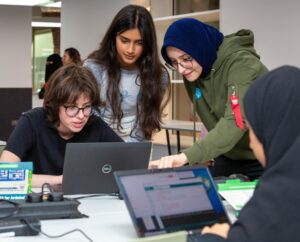
The success of the Electronics sector is crucial to the UK economy. The global semiconductor industry is the fourth largest industry in the world. The global semiconductor market has been forecast to reach $1 trillion, with the UK share being around 8%. In 2023, the UK Government pledged to invest up to £200 million into the UK semiconductor sector over 2023-25, with a total investment of up to £1 billion over the next decade.
Making advances in Electronics and semiconductors is critical to providing technological solutions to some of society’s biggest challenges, including climate change, improving healthcare and better connectivity and communications. Initiatives like Girls into Electronics are essential in encouraging more students from diverse backgrounds to consider careers in the sector.
We are now seeing the positive impact of Girls into Electronics programme as more female students are starting Electronics degrees. The support from Apple has been invaluable and has enabled us to grow this vital programme and I’m delighted to continue our partnerships with the UK’s leading universities in 2024. Girls into Electronics is shining example of what can be achieved when we work together on skills challenges.
Stewart Edmondson, CEO at UKESF
This programme is vital in challenging the gender imbalance in the Electronics industry, which is why we at Apple are thrilled to be part of the initiative again this year. With our sponsorship of last year’s programme, UKESF saw record participation, and we hope to go beyond those numbers in 2024. Excitingly, this year’s participants will be offered the opportunity to join Apple’s mentorship programme, giving them access to engineers who can provide advice as they further their studies in Electronics.
Mari-Anne Chiromo, Apple Inclusion and Diversity Partnerships Lead EMEIA
The events will take place in June and July 2024. Schools, students and parents can find out more, and register their interest, here
A strong Electronics and ‘deep tech’ industry is essential to the health of the UK economy but we know that the UK has a skills shortage in this critical sector. That’s why it’s great to see the work that the UKESF is doing encouraging more young people to pursue careers as Electronics Engineers. In particular, their Girls into Electronics initiative has the potential to make a real difference and it is something that we strongly support.
Chi Onwurah MP, Shadow Minister (Business, Energy and Industrial Strategy)
Supporting our scholars to develop their professional network is central to the Scholarship Scheme. For the 7th consecutive year, the UKESF arranged for final year female scholars to attend the Women’s Engineering Society (WES) Student Conference, their places were kindly sponsored by STMicroelectronics.
The conference, which took place in Leeds on 1 December 2023, comprised sessions on networking, resilience and presenting, alongside the opportunity to hear from women in the industry.
Some of our scholars share their thoughts and experiences following the event.
I had the pleasure of attending the Women’s Engineering Society Student Conference in Leeds. I left the event feeling super inspired, so I want to share some of the workshops and talks that made it such a memorable experience for me.
Overall, this was a great opportunity to connect with other talented women engineers and hear their stories. I learned that I’m not alone in many of the experiences that have characterised my journey up until now. Much of the advice extended beyond career and was applicable to many areas of personal growth and development. I learned how I can continue to hone my skills and pave a path into engineering and tech.
Events like the WES conference help women feel part of a wider community. They show us that we are not alone in our experiences and are a really good opportunity to learn how we can better navigate our professional lives. These sorts of events are crucial in retaining female talent in the industry.
Qali Mahamoud – Aston University/CSA Catapult
I think that most of the speakers at the WES Conference were and are genuinely supportive of young women finding their place within tech and engineering. I think that events for young women and minority genders are incredibly important across all industries but I also think there should be a greater focus on working together as a community. For instances, at the conference there were many questions about how to react to men when they talk over women, which is a very important topic especially with how it links with general confidence issues and imposter syndrome as a woman. However, the answers never commented on what is being done to stop men actually doing it in the first place. I think that these conferences should definitely cover these issues more and move away from creating a “us and them” environment between men and women in STEM.
Leane Ickes – Leeds University/Raspberry Pi
I had the wonderful opportunity to attend the WES conference. I was so inspired by the atmosphere that was held that day. The environment of working with other women during the bridge exercise is something I hope to see and feel in my future endeavours. From Vince Pizzoni’s amazing advice on cv creation, my peers’ brave one minute presentations, and Elizabeth Donelly’s incredible advice on how to be more confident in the workplace as a women, I learned a lot. I am incredibly grateful.
Sofiya Rahman – Aston University/CSA Catapult
“The UKESF Scholarship Scheme is a fantastic initiative that I recommend to anyone studying Electronics” UKESF Scholar of the Year 2023
The UKESF Scholar of the Year 2023 has been announced at the annual TechWorks Awards and Gala Dinner in London. Matt Cossins is the talented UKESF Scholar who walked away with the top prize. There were so many exceptional entries this year, the judges found it too difficult to choose just one runner up so two brilliant UKESF scholars were recognised, Vasiliki Xiradaki and Calum Thow.
All three of the fantastic finalists received rave reviews from their sponsor companies for outstanding contributions during their work placements and they have also done brilliantly well on their degree courses.
TechWorks Scholar of the Year winner 2023 – Matt Cossins
Matt is currently studying for his Masters in Electrical and Electronic Engineering at the University of Nottingham. In September, Matt completed his year long placement at his UKESF sponsor company Capgemini Engineering.
“I’m delighted to be the UKESF’s Scholar of the Year. It’s a perfect recognition of the hard work across my degree, my placement, my work for the Electronic Engineering Society at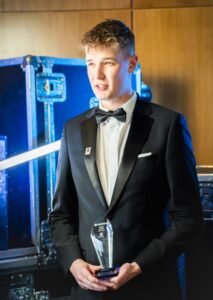 the University of Nottingham, and my STEM outreach to my local school – Longsands Academy. It is especially rewarding to receive in my final year. I joined the UKESF Scholarship scheme back in 2019 when I started first year, so it has been a key part of my whole university experience. Simply having the scheme on my resume has opened doors and greatly expanded my network with like-minded, hard-working people within the Electronics industry.
the University of Nottingham, and my STEM outreach to my local school – Longsands Academy. It is especially rewarding to receive in my final year. I joined the UKESF Scholarship scheme back in 2019 when I started first year, so it has been a key part of my whole university experience. Simply having the scheme on my resume has opened doors and greatly expanded my network with like-minded, hard-working people within the Electronics industry.
“Completing a one year placement with Capgemini Engineering was an invaluable experience and a nice change of pace from university life. I got the chance to live in Bath, a lovely part of the country, whilst also working on interesting and varied projects. The culture at the office was very welcoming, and it was great to work alongside such friendly and talented people. On a technical level, I learnt skills and technologies that I had not previously touched, and on the soft skills side I had the opportunity to interview applicants to graduate roles at the company, and make full use of Capgemini’s library of online courses – such as courses in Project Management, and in AWS.
“The UKESF Scholarship Scheme is a fantastic initiative that I recommend to anyone studying Electronics. There are no downsides and there are numerous benefits – not least the UKESF Residential Workshop: an event that has been extremely helpful with working out my job interests post-graduation, and finding out more about Electronics Start-ups. Organisations like the UKESF make it very easy to promote electronics to young people, as many other similar STEM degrees simply do not have similar opportunities.”
TechWorks Scholar of the Year runner up – Vasiliki Xiradaki
Vasiliki, who is sponsored by EnSilica, is at the University of Birmingham studying for an Electrical and Electronic Engineering degree.
“I’m incredibly thankful for the doors that UKESF has opened for me. It’s an honour to be the TechWorks UKESF Scholar of the Year runner-up, and it wouldn’t have been possible without the support from my sponsoring company EnSilica, and more specifically my mentor, James Hawkes, my manager, David Tester, and all my amazing colleagues who actively supported me throughout this journey. I am looking forward to joining them as a full time engineer next year!
“The UKESF Scholarship Scheme has not only enhanced my technical proficiency but has genuinely changed my career trajectory. I am now more confident, more experienced, and more prepared for the challenges and opportunities that lie ahead. I wholeheartedly recommend the UKESF programme to aspiring students who are eager to dive into the world of electronics.”
TechWorks Scholar of the Year runner up – Calum Thow
Calum is completing his Masters in Robotics, Autonomous and Interactive Systems at Heriot-Watt University and his sponsor company is Allegro MicroSystems.
“The UKESF scholarship scheme is fantastic. I only discovered the UKESF last year whilst looking for a final year placement, so this last year has been a bit of a whirlwind for me. I am honestly floored to have been selected as one of the finalists for the scholar of the year award, it feels fantastic to be recognised for my hard work over the last few years. I want to extend a huge congratulations to Matt for coming first place and Vasiliki for being my fellow runner-up.
“I think the work the UKESF is doing is honestly one-of-a-kind. I can see from my fellow scholars that the scholarship scheme works, it’s evident that they excel in their fields. Beyond individual accomplishments, what truly stands out to me is the broader mission of the UKESF. I’ve noticed that, once at university level, opportunities abound for those willing to seek them out. However, at the school level, it can be challenging to gain exposure to or understand the importance of electronics engineering. UKESF is one of the few organizations actively addressing this issue, working to bridge the gap and make electronics engineering accessible and understandable at an earlier stage in education. ”
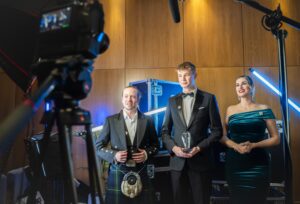
Watch highlights from the awards ceremony on 7 December 2023 here
The BrightSparks Awards celebrate some of the most talented young electronic engineers in the UK. The UK Electronics Skills Foundation (UKESF) are delighted to announce eight of their scholars were BrightSparks Award 2023 winners at the Electronics Weekly Elektra Awards.
All the UKESF scholars are brilliant but it was Jasmine, James, Richard, Nyal, Vasiliki, Matthew, Raymond and Mary who walked away with a prize.
Read more about the BrightSparks Award winners here

And the winner is…the UK Electronics Skills Foundation (UKESF)!
The UKESF Girls into Electronics 2022 programme won the Educational Support Award at the Electronics Weekly Elektra Awards 2023.
Congratulations to the UK Electronics Skills Foundation (UKESF) for their unwavering dedication to promoting and encouraging young girls to pursue careers in electronics. Your hard work and persistence in raising awareness is truly commendable!
Find out more about this year’s Elektra Awards here.
The UKESF would like to thank Compound Semiconductor Applications (CSA) Catapult for sponsoring the Girls into Electronics programme in 2022.
The Girls into Electronics events, hosted by leading UK universities, inspired girls aged 15-18 and encouraged them to pursue a career in Electronics.
We know that the ability to do hands-on, practical, work is a crucial part of any Engineer’s skillset and that this type expertise is highly regarded in industry. However, the latest IET survey on the skills gap found nearly half of employers in the technology sector reported a gap in skills in their workforce.
Of course, university students studying Electronic and Electrical Engineering, or a related degree, are introduced to practical work and lab equipment as part of their courses. However, with assignments and exams looming large, this can be a daunting and potentially stressful experience. Also, the design tasks carried out as formal parts of degree courses are often fixed and so there can be limited opportunity for personal creativity. Many universities have ‘maker spaces’ for use by their students. However, the University of Edinburgh have gone a step further and created an After Hours Club for Electronics students. The After Hours Club, which has been operating with growing success since 2013, provides a structured approach and offers support to engineering students to help them develop their skills. We think it is a great example of ‘good practice’ and you can find out more here.

Stew Edmondson, CEO UKESF
Coventry University becomes the 28th leading UK university to work with the UK Electronics Skills Foundation (UKESF). Students* from the university will now have the opportunity to participate in the award-winning UKESF Scholarship Scheme.

Each year, prestigious electronics and technology employers offer UKESF Scholarships to undergraduates from the partner universities. Students awarded a scholarship are supported throughout their degree with opportunities for work placements to develop the skills they need to thrive in electronics, professional development, networking and outreach.
This new collaboration is great news for companies involved in the scholarship scheme as there will be even more talented and high-achieving students to connect with.
We know from our industry contacts that Coventry University produces exceptional engineering graduates. Their activity-led learning approach is excellent and provides their students with the opportunity to work on real-life problems and projects. They have first-rate facilities and a strong focus on outreach and schools engagement. Therefore, I’m delighted they are now a UKESF collaborator and we look forward to working together.
Stewart Edmondson, CEO, UKESF
The UKESF Scholarship Scheme, which has been recognised with a Princess Royal Training Award, is an exemplar of effective engagement between industry and universities.
Coventry University is thrilled to embark on this transformative collaboration with the UK Electronic Skills Foundation (UKESF). It represents a significant milestone in the university’s commitment to equipping our students with the technical, professional and personal skills and experiences necessary for success in the dynamic fields aligned with electrical and electronic engineering.
Our students will gain access to a wealth of opportunities, including bursaries, mentorship, and invaluable industry exposure. This collaboration will empower our engineering graduates to transition seamlessly into their graduate roles, armed with a diverse skill set.
Patricia Ashman, Associate Head of Future Transport Engineering at Coventry University
Find out more about the UKESF Scholarship Scheme here
* Students will need to be studying an undergraduate degree which contains a substantial amount of Electronics
The UKESF Renesas Award for Female Students is a fantastic opportunity to gain valuable work experience, during a paid summer placement, and receive a financial bursary whilst an undergraduate at university. The award, a collaboration between Renesas (formerly Dialog) and the UKESF, supports female students at the start of their Electronics-related degree course, at one of the UKESF’s 28 partner universities.
2022/2023 award winners Arkapriya and Tianya – both University of Cambridge students – have just finished their summer work placements at Renesas and in this blog we hear about their motivations, how the award has benefitted them and advice for other women considering a career in Electronics.
My three passions in secondary school were definitely mathematics, physics and computer science – something I carried forward with me to A Levels and now at University. Electronic engineering is the natural intersection of these disciplines – bringing the nuance of physics to understand physically what is going on in a device, the logic of computer science in digital electronics, and the mathematics that underlies all of it. My interest continues to evolve with my experience at Renesas – for instance, I have developed an appreciation for analogue design and semiconductor physics.
The UKESF Renesas Award has served me in many ways, bolstering my academic, professional and personal growth
It taught me the calibre of skills needed to be a proficient engineer; gave me an opportunity to further my understanding of the industry; and taught me how to most effectively use my time. Learning from textbooks will only go so far – poring over all the practice questions and theory is incomplete without the learning and appreciation derived from practical experimentation, as I’ve been doing for the past few weeks. Unfortunately, hands on experience like this tends to be a luxury when hard pressed for time – which is why I’m very grateful for this placement for giving me that space and time to improve my understanding.
In addition, it is a privilege to witness the research and development that takes place at such organisations – I have seen and handled (with guidance) equipment and facilities that are state-of-the-art. I have also had the honour of meeting incredibly intelligent engineers who are always willing to teach. Having exposure to such an environment opens up so many different possibilities in your mind young person, and working under such mentors not only accelerates your learning, it also provides you with role models.
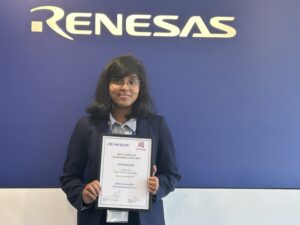
I’ve known I wanted to study engineering since I was about fourteen years old – at the time it was clear to me I enjoyed the physical sciences a lot, and I enjoyed creative work when building prototypes for technical projects. I streamlined my focus to engineering subjects in each stage of my journey, and now I am studying it at the University of Cambridge, working to earn a Masters degree by 2026.
My biggest takeaway is how complicated the entire process is and how much work goes into creating a single product. Everyone I have met is constantly using a range of their skills to tackle each problem that arises. Starting university, it is very easy to be overwhelmed by the level of proficiency one has to reach: I remember finding electronic engineering, particularly analogue analysis and design very challenging – it did not come naturally to me. But, working under the wing of so many seasoned engineers at Renesas gave me the freedom to explore the topic and gain confidence in it. I was encouraged to take my understanding further, and found it immensely rewarding to grasp new concepts.
Female students need to be given the opportunities to recognise our skills and improve our self-assurance
I found that more than anything, my lack of confidence was the greatest barrier in pursuing my goals. From my own experiences, I had many opportunities in secondary school and sixth form to prove to myself I had the ability and drive to turn my passion into a career. That is the most important thing, in my opinion – the exposure to STEM and active engagement in it. Being given opportunities like this award affirms that decision.
If I were to give advice to other female students considering a career in engineering it would be “Go for it!”. There tend to be fewer female engineers than male engineers – do not let that be a deterrence. At the end of the day, we are all people with brains. If you cultivate your interest and continuously improve your technical skills, it is a very rewarding path. There is no greater feeling of achievement than seeing the fruits of your labour, and Electronic Engineering is certainly a career where you see it happen. I believe that if you strongly want this, the only barrier between you and your goal should be your competence.
Electronics has always been a field that combines problem-solving and innovation with the tangible world around us. For me, electronics are everywhere, from daily devices that we use like phones and smartwatches to advanced technologies like robots and automotive. I enjoy the potential for creativity and learning when solving electronics problem. There’s always something new to discover, whether it’s designing a circuit, programming a microcontroller, or exploring the latest advancements in semiconductor technology. The feeling of bringing an idea to life through electronics is incredibly rewarding, and it’s a field that continuously challenges and inspires me.
The UKESF Renesas Award has opened a multitude of doors for me to delve deeper into the fascinating realm of semiconductors
The placement opportunity transcends textbooks and theory, offering me the exhilarating opportunity to witness real-world applications come to life. It’s like the missing piece of the puzzle finally falling into place, where everything clicks with a profound sense of excitement.
My journey in electronics has been a thrilling exploration, with Arduino robots being a significant part of it. Working with microcontrollers has been particularly fascinating. These pint-sized devices, akin to miniature computers, never cease to amaze me with their ability to accomplish a wide array of tasks through programming. From designing a personalised gardening system that automates plant care to creating a drawing robot capable of intricate artworks, each project deepened my passion for electronics.
During my journey at Renesas, I’ve gained a fundamental understanding of how microchips function
I had the opportunity to delve into HTOL testing, which provided insights into the rigorous process of testing electronics for reliability. While working in the software team, I’ve had the opportunity to provide support to hardware engineers in test simulations. Witnessing how graphical user interfaces are employed to automate testing processes has been particularly fascinating. Looking ahead, I want to delve into the cutting-edge world of chip design, where I hope to explore ways to enhance semiconductors’ reliability and expand their capabilities.
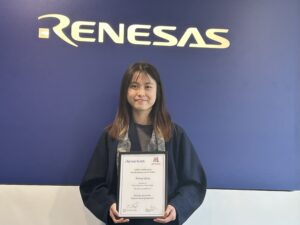
Promoting gender diversity and inclusion in the electronics profession is essential. By creating an inclusive environment, women will be encouraged to pursue careers in electronics. The industry should invest in training and development programmes that empower women to enhance their technical skills and overall confidence in their roles. It would be good to encourage the formation of women’s support networks within the industry, allowing women to share experiences, exchange insights, and provide mutual support.
First of all, have confidence in your abilities and potential. Believe that women can equally excel in the field of Electronics. It is also important to embrace failures as valuable learning experiences. Electronics often involves trial and error but it always bring you closer to finding the right solution. Keeping up with industry trends, emerging technologies, and new developments in Electronics would also be helpful. But just enjoy!
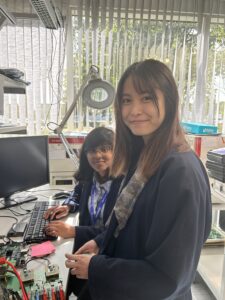
Find out more about the UKESF Renesas Award here
“I went in with very high hopes for the workshop, yet my expectations were easily exceeded!”
A key part of our award-winning Scholarship Scheme is the annual residential Scholar Workshop. This year, we brought together scholars from 18 different universities who had completed work placements, during the summer, at 37 different employers. It was another really successful workshop and the feedback testifies to this.
“Just a really valuable networking opportunity and I enjoyed meeting other electronic engineers”
It’s an immersive experience and we try to cram as much as possible into the four-day residential course, held this year in glorious weather at York University. We pack the Workshop with engaging presentations from expert speakers, interactive activities and lively discussion. Over the years, we’ve refined the programme content to ensure we support the students’ professional and personal development ahead of their final year of study. Throughout the four days, participants also benefitted from the chance to socialise, get to know their peers from different universities and to attend a formal dinner together on the final evening.
“I really enjoyed the workshop because it focused on both professional and personal development“
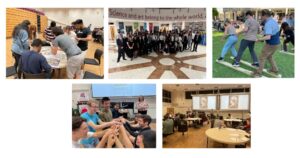
I always find it a real pleasure and genuine privilege to spend the week with our scholars. Hearing about their experiences both at university and during the work placements is very interesting and it so rewarding to see their progress. They are amazing young people, eager to learn and receptive to new ideas, who will all make fantastic engineers. They are the future of Electronic Engineering and semiconductors in the UK.
“I had a great week, learnt and grew so much. Thank you to all the UKESF team for putting this event on!”
If you’re an employer and would like to find out how your company can benefit from connecting with a UKESF Scholar in 2023/24, then you can find out more here or email me directly – [email protected]
Stewart Edmondson, CEO UKESF
The UK Electronics Skills Foundation (UKESF), in collaboration with tech giant Apple, has just wrapped up a very successful Girls into Electronics 2023. This year’s programme saw more than double the number of female students participating, 465 compared to 230 in 2022.
Encouraging the next generation of female engineers as 85% of participants are inspired by electronics
The Girls into Electronics events, hosted by leading UK universities*, inspired the students attending and encouraged them to consider a career in Electronics. Girls from over 100 schools, right across the UK, attended. The initiative is part of the UKESF’s wider work to address the skills shortage in the Electronics sector, whilst also tackling the gender imbalance. In 2022, in recognition of our work, the UKESF was given a Princess Royal Training Award special commendation for Equality, Diversity and Inclusion.
We’re thrilled at the success of this year’s Girls into Electronics programme. To more than double the number of female students participating is an amazing achievement. The UKESF is also striving to improve diversity and inclusion in the Electronics sector so we’re also pleased to announce nearly half of the students participating were from ethnic minority backgrounds. We’d like to thank all the universities involved for hosting such brilliant events. And a special thank you to Apple for supporting the programme this year. Stewart Edmondson, Chief Executive Officer at UKESF
Girls into Electronics gives KS4 pupils and sixth formers the unique opportunity to develop their interest in Electronics. At the heart of the programme is a one-day event at a leading UK university. 97% thought the event at their host university was good or excellent During the day participants find out all about Electronics, studying the subject at university and enjoyed an opportunity to get hands on with electronics kits. The students hear from female graduates working in the Electronics sector and, this year, engineers from Apple also shared their experience working on hardware technology.
Education can be a powerful force for equity, and help provide young women with the tools and opportunity to pursue a rewarding career in engineering. We’re thrilled to have worked with the UKESF on this important initiative, encouraging more women from all backgrounds to study electronic engineering and increase diverse representation in the field. Mari-Anne Chiromo, Apple Inclusion and Diversity Partnerships Lead, EMEIA.
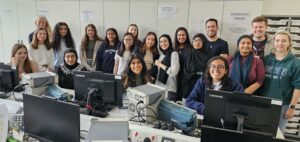
It was a fantastic event at Aston University and the girls loved it. Organisers were brilliant and all communications were effective. One of the girls is now considering switching from a dentistry pathway to an electronics course. So the whole team behind Girls into Electronics made a great impression – well done! Alistair Clarke, Teacher from Hamstead Hall Academy
Find out more about the UKESF’s Girls into Electronics programme here
*Participating universities: Aston University Birmingham – University of Bath – University of Bristol – Heriot Watt University – Imperial College London – King’s College London – Lancaster University – University of Leeds – University of Liverpool – Newcastle University – Nottingham University – Queen’s University Belfast – University of Sheffield – University of Southampton – University of Strathclyde Glasgow – Royal Holloway University of London
In2scienceUK gives young people from low-income backgrounds the opportunity to gain essential insights into STEM careers with dedicated professional mentors.
Introducing In2scienceUK
Since 2011, In2scienceUK has provided thousands of young people with the experience, skills, and confidence they need to reach their potential in STEM. The young people that take part in the In2scienceUK programme are recipients of free school meals and have parents with no experience of higher education. According to the Social Mobility Commission, young people from low-income households are significantly less likely to progress to professional careers in STEM than their peers, with only 11% progressing to top-tier universities. In2scienceUK’s mission is to enable those from underrepresented backgrounds to access the support and experience they need to progress and diversify the STEM sector.

The Shortfall in STEM Skilled Workers
The United Kindom is facing a long-term skilled worker shortage across engineering and electronics. The Institution of Engineering and Technology Skills Survey 2021 concluded that 76% of companies with over 100 members of staff reported difficulties in recruiting professional staff with engineering qualifications. The lack of inclusion and access to research opportunities and training opportunities within the electronics sector is limiting the development of diverse leadership within the UK electronics industry.
By developing programmes in line with current industry shortfalls and working with local communities across the UK, In2scienceUK aims to deliver STEM engagement programmes that connect communities. The In2scienceUK Programme provides young people with relevant support and role models to further diversify the STEM sector and promote innovation.
Championing Social Mobility in STEM
In2scienceUK’s mission is to increase the STEM pipeline and enable young people to access the support and skills they need to reach their potential. Young people that take part in The In2scienceUk Programme are significantly more likely to progress to higher education than their peers from the same economic background. In 2021, In2scienceUK was awarded The Queens Award for promoting social mobility through opportunity in light of high-quality work with young people.
In 2022, In2scienceUK supported over 600 young people to access the bespoke support they need to reach their potential. This year In2scienceUK aims to provide over 800 young people with STEM work placements and further opportunities. However, with more than 2000 young people applying each year, we need additional support from the STEM industry and research organisations. By working in collaboration with UKESF, we aim to expand the number of electronics and electrical engineering placements available to young people.
Support In2scienceUK
Every year In2scienceUK receives over 2000 applications from young people passionate about careers in electronics and electrical engineering. Click here to find out more about the In2scienceUK programme and how you can support it.
If you would like to support and host a cohort of young people and make a positive contribution to diversity, inclusion and social mobility in STEM, please get in touch with Luke Mckelvey, In2scienceUK’s dedicated Development Manager, [email protected].

By Luke Mckelvey, Development Manager at In2scienceUK
The prestigious UK Electronics Skills Foundation (UKESF) Scholarship Scheme is growing fast and is celebrating its most successful year, since it was established in 2010. This year, there were 266 applications from undergraduates studying at one of the UKESF’s 27 partner universities.
The scholarship scheme, which has been recognised with a Princess Royal Training Award, is an exemplar of effective engagement between industry and universities. To date, over 750 students have participated and over 70% of companies involved have recruited UKESF Scholars, into permanent roles, at the end of their university studies.
“I am extremely grateful for both the opportunities I have been given and the experience attained all thanks to the support and generosity of both the UKESF and my sponsoring company.”
UKESF Scholar 2020-23 – Andrew (Lancaster University)
Highlights from 2022/23
More companies than ever joined the UKESF Scholarship Scheme this year and the employer survey satisfaction results are at their highest levels since the scheme began.
“The UKESF raises the profile of Electronic Engineering and provides the best students from the best universities to companies looking for interns. Students benefit from having a great experience in the workplace, so it’s a win-win for everyone.” Renesas
Tackling the gender imbalance
The UKESF strives to address the gender imbalance in the electronics sector and the scholarship scheme is making a real difference. This year, 28% of UKESF scholarships were awarded to female students. This is a record number and is an excellent outcome when only 13.5% of EEE undergraduates are female.
Building on this success, we know that over 90% of female UKESF scholars, who have graduated now work in the Electronics and Technology sector. There have been some fantastic young female Electronics Engineers succeed through the scholarship scheme, such as the UKESF Scholar of the Year 2022 Nishika.
“I hope that through my award I can inspire and motivate more young girls to study Electronics and showcase to them that we can do equally well as our male counterparts.”
Princess Royal Training Award
In 2022, the UKESF Scholarship Scheme received a Princess Royal Training Award. The award was given as testament to the valuable work experience that the UKESF network of employers provides, and the in-depth wrap-around support that helps undergraduates to thrive when they enter the workplace. The UKESF was also given a special commendation for Equality, Diversity and Inclusion.
Scholarship Scheme 2023/24
The UKESF Scholarship Scheme is now open for employers to join for the 2023/24 academic year. If your organisation is interested in de-risking your graduate recruitment and connecting with amazing students, then find out more here or email [email protected].
During my eight years leading the UK Electronics Skills Foundation (UKESF), demand for graduates has always been high but now it’s outstripping supply so the situation is even more critical. The Electronics industry is facing fierce competition from other sectors who are attracting Electronic Engineering graduates, as they’re recognising their skills are highly transferable. In a recent Viewpoint article in Electronics Weekly, I discussed the challenges employers are facing when recruiting Electronics Engineering graduates
In this blog, based on the article, I wanted to focus on how organisations can de-risk their graduate recruitment by being proactive and thinking a few steps ahead. At UKESF we urge employers to build relationships with potential employees, whilst they’re still undergraduates.
This can be done by offering work placements and internships. This enables employers to get to know someone, in the work context, over an extended period. A chance to see the ‘real’ person, assessing their capabilities and potential, to see if they are a good fit for your company.
From a student’s perspective, a work placement provides an invaluable opportunity to gain practical experience to complement their academic studies and to hopefully secure a job on completion of their studies.
For both employer and prospective future employee this process creates a ‘try before you buy’ scenario which can help create a successful recruitment match.
However, reaching students can be difficult for organisations. Attending careers fairs at universities can be time consuming and inefficient. The open recruitment route via student careers websites may not produce suitable candidates.
This is where the UKESF can help! For over 10 years, the UKESF Scholarship Scheme has helped the Electronics industry recruit talented and motivated undergraduates, connecting 90 companies with over 750 students.
Employers have been fully involved in the design and development of the scholarship scheme since its inception, and it has gone from strength-to-strength – this year we had the largest ever number of companies offer scholarships. The UKESF is able to reach a wider pool of students than individual companies are able to on their own.
Companies who are supporting undergraduates, to gain experience and build their professional skills throughout their studies, are taking positive action to address the graduate skills shortage and build long term relationships with high-achieving young engineers.
Find out more here or get in touch with me at [email protected]
Stewart Edmondson, Chief Executive at UKESF
As an educational charity, the UK Electronics Skills Foundation (UKESF) collaborates with major companies, leading universities and other third-sector organisations, to tackle the national skills shortage in the electronics sector. For 10 years, AWE has worked with the UKESF, supporting the foundation’s mission to encourage more young people to study electronics and to pursue careers in the sector.
Technology is fundamental to the security and defence of the UK. Electronics plays a key role in technology, underpinning advances that enable the UK to be competitive.
 AWE plays a crucial role in the defence of the UK, by providing and maintaining the warheads for the country’s nuclear deterrent. The organisation is a centre of scientific, engineering and technological excellence, with some of the most advanced research, design and production facilities in the world. Its unique expertise also assists the UK Government in developing and delivering a range of innovative and integrated support services, including national nuclear security and counter-terrorism solutions.
AWE plays a crucial role in the defence of the UK, by providing and maintaining the warheads for the country’s nuclear deterrent. The organisation is a centre of scientific, engineering and technological excellence, with some of the most advanced research, design and production facilities in the world. Its unique expertise also assists the UK Government in developing and delivering a range of innovative and integrated support services, including national nuclear security and counter-terrorism solutions.
AWE’s skills and capabilities position it as a leader in its fields of expertise. These capabilities serve as a base for significant contributions to national nuclear security, threat reduction and counterterrorism in support of the UK Government.
At AWE, Electronics is inextricably linked with other disciplines – science, engineering and maths – to ensure the organisation can support the UK Government’s nuclear defence strategy effectively.
However, despite the importance of Electronics in Defence and other areas, including healthcare, communication, transport and energy, the UK’s participation in and leadership of technological advances is being limited by a chronic skills shortage.
Over many years, too few students have been studying electrical and electronic engineering and this means that there are insufficient graduate engineers to drive forward innovation, to develop the next generation of products and help to produce the creative technological solutions needed by society.
UCAS figures show that just 3,245 students enrolled on degrees in electronic and electrical engineering in the UK 2021, and as few as 335 were women.
It is impossible to calculate the cost of the skills shortage to the UK economy, but it has significant implications for local and wider industry.
The UKESF has worked tirelessly with schoolchildren, students, teachers and parents to raise awareness of the rewarding career opportunities available in the electronics industry.
With the support of corporate sponsors, such as AWE, the UKESF has created a range of educational electronics-focused activities for students from school age through to university, inspiring young people with hands-on experience and connecting them with major employers in the sector.
At the heart of the UKESF is its undergraduate Scholarship Scheme. It provides students with the opportunity to experience electronics and engineering in practice, through meaningful work placements, and to undertake professional development in order to succeed in industry as a graduate. The scheme is widely recognised as an exemplar of engagement between higher education and industry, winning a Princess Royal Training Award in 2022. AWE has supported 26 aspiring electronics engineers through the scheme.
“During my studies, the UKESF’s support was invaluable. I greatly appreciated the annual bursary which comes with the scholarship, as this allowed me to focus more on my degree instead of the cost of living at university. I completed a Year in Industry and summer placement through my scholarship, which provided valuable experience which I have carried forward with me into my career. Additionally, I found that the Scholars Workshop was an excellent opportunity to network, develop soft skills, and understand professional development.” Current AWE Scholar – Joshua Speakman (University of Nottingham)
“The UKESF Scholarship Scheme is an important means of providing students with the training and experience that they will need when they join industry. For an employer, this means that a new recruit will ‘hit the ground running’ and be a valuable member of staff from day one. I wish that there were more schemes of this nature to provide on-the-job skills and experience to the UK’s students.” AWE Deputy Chief Scientist – Professor Norman Godfrey
In the last 10 years, there has been a total of 26, current and graduated, AWE scholars who have participated in the UKESF Scholarship Scheme.
“At AWE we welcome early careers employees and bring them in from a number of routes including apprenticeships, graduates and undergraduates. They are a key part of the workforce and the future of the organisation. The UKESF is another important pipeline into the industry and helps us to build vital skills, provide the scholars with great work experience, particularly in an area where there is a skills shortage. We are delighted to support this scheme and look forward to helping more of the future workforce.” AWE Senior Manager (People Capability) – Sharon Steed
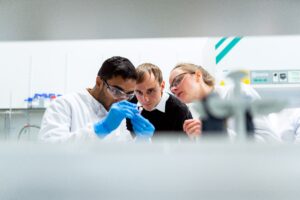
CURRENT AWE SCHOLAR – Joshua Speakman (University of Nottingham)
Why Electronics?
I chose electronics at university partly because of my passion for maths throughout school and partly because of the interactions I had with academics at university open days. These interactions, one of which was after getting to try a VR headset, intrigued me into the workings of different devices and what the future could hold. The prospect of working on cutting-edge technology and being able to develop the backbone of products made it an easy decision!
Your experience as a UKESF AWE Scholar
As a UKESF scholar I was given a buddy that had been through the same experience as me and was able to help me through the onboarding process. This inspired me to want to help out and therefore I became a buddy for a student the following year.
Working at AWE
At AWE, I have worked within the engineering function, primarily with temperature sensors and also charge measurement techniques. This has helped me to work with a range of different teams and get a wide overview of the company and how I fit into the overall mission. I was welcomed by everyone when I first joined the company and settled in quickly.
GRADUATED SCHOLAR – Hamzah Iqbal (Aston University – graduated 2022)
Why electronics?
I have always had a keen interest in technology and pursuing a career in electronics helped further that passion into a more productive endeavour. The ability to design, create and innovate drives me in my day-to-day work. It provides a sense of fulfilment and purpose that is seldom found.
Your experience as a UKESF AWE Scholar
UKESF consistently supported me throughout my time at university and has been brilliant at staying in touch after I have graduated. I have found the opportunities offered to be useful and interesting and the UKESF was key in supporting me to where I am in my career today.
Working at AWE
At AWE I was able to work with a variety of technologies on projects that directly benefited an end user. The work was both technical in nature and had a wide variety which helped keep things interesting. I enjoyed the variety of work I was presented with at AWE, and I also enjoyed the work life balance and the culture.
GRADUATED SCHOLAR – Alex Pirie (University of Surrey – graduated 2021)
Why Electronics?
I have always been fascinated with the way things worked and was attracted to engineering and technology from a young age. After trying A-Level electronics at college I was certain that it was a career path I wanted to pursue. The thing I find most enjoyable about electronics is the relationship between theory and practice. I find it very rewarding to be able to develop an understanding through learning, and then to see the results by experimenting and applying my knowledge.
Your experience as a UKESF AWE Scholar
During my studies, the UKESF’s support was invaluable. I greatly appreciated the annual bursary which comes with the scholarship, as this allowed me to focus more on my degree instead of the cost of living at university. I completed a Year in Industry and summer placement through my scholarship, which provided valuable experience which I have carried forward with me into my career. Additionally, I found that the Scholars Workshop was an excellent opportunity to network, develop soft skills, and understand professional development. This was something I am very glad to have been able to attend.
Working at AWE
During my placements at AWE, I worked independently and collaboratively on several multidisciplinary projects and gained hands-on experience beyond what I had learned at university. I designed and assembled PCBs, conducted conceptual design and development activities and tested electronic systems in a laboratory environment. I also developed transferable business skills such as report writing. The thing I most enjoyed was being integrated with a large community of graduate engineers, and I had many useful interactions which helped me to plan the early stages of my career.
The UKESF strives to encourage more young people to study electronics and connects the most talented students from leading universities with employers. The charity’s activities, schemes and programmes are made possible by the support of organisations in the electronics industry.
 The educational charity is keen to get even more students, at schools and colleges across the UK, to participate in their activities and programmes.
The educational charity is keen to get even more students, at schools and colleges across the UK, to participate in their activities and programmes.
The UKESF will continue to encourage the Government to recognise the importance of promoting Electronics to secondary schools and developing the skills of graduates to ensure future technological leadership.
There will be an expansion of the UKESF Scholarship Scheme, additional companies will be invited to come on board and there will be an increase in the numbers of scholarships offered, to connect even more students with leading employers. The collaboration between the UKESF and organisations, such as AWE, helps to tackle the skills shortage in the Electronics industry and secure the UK’s future as a world leader in this sector.
“The great thing about electronics, I found, was that every day is a new challenge – and everything is possible. Your voice matters just as much as anyone else’s, because others may have been in the field for longer, doesn’t mean they can see what you can see. That’s particularly important if you’re a minority.” Chi Onwurah MP
The National Semiconductor Strategy, recently published by the Government, makes clear that “we need to inspire the next generation of semiconductor experts that will drive the growth of tomorrow by promoting physics, engineering and electronics“. Therefore, ahead of International Women in Engineering Day (#INWED) and the launch of our Girls into Electronics events programme 2023, we sat down with the inspirational Chi Onwurah MP.
As a black working-class woman from a council estate in Newcastle, Chi Onwurah was in a minority of one studying Electrical Engineering at university in London. She went on to build digital networks all over the world, including the first mobile phone network in Nigeria. Today she is the UK’s Shadow Minister for Science, Research and Innovation. Chi is a supporter of the UKESF and has a particular interest in the Girls into Electronics initiative.
“It’s great to see the work that the UKESF is doing encouraging more young people to pursue careers as Electronics Engineers. Their Girls into Electronics initiative has the potential to make a real difference and it is something that I strongly support.”
Therefore, we wanted to find out more about Chi’s experiences and get her thoughts on the future.
What motivated you to choose Electrical Engineering/Electronics, rather than another STEM subject or career?
Science interested me from a very early age – I wanted to understand how the world worked. I remember learning about Archimedes and the displacement of water at the age of nine. I went home, filled the kitchen sink with water, and put various utensils into it to try and see how much water I could slop over the side. My mum was not particularly keen on this method though! When I was around 14 and choosing O and then A level subjects, that was when I had to think really hard about what I wanted to ‘be’. I realised I didn’t want just to understand how the world worked, I wanted to make it work better. Which for me meant engineering rather than scientific research. I was very interested in computers and space, so that made Electrical Engineering the best fit.
I decided to study Electrical Engineering at Imperial College in 1984 and following my degree I was excited by the field of telecommunications both on a personal and a technical level as it brought people together. At the time, in the 80s, we knew we were on the verge of a telecommunications revolution in the move from analogue to digital and I wanted to be part of that. We’ve now been through three or four revolutions since then!
What has your degree in Electrical Engineering helped you to achieve that you are most proud of?
My first big contribution to the digital revolution, one of which I am most proud of now, was designing the world’s first double-sided surface mount Primary Rate Interface ISDN – ISDN or Integrated Services Digital Network was one of the first protocols to support the move to digital. A device a little bit smaller than an A4 sheet of paper could connect 32 different voice calls at the same time, controlling where they went and their quality.
But probably the achievement I’m proudest of, before becoming an MP, is helping build out Nigeria’s first GSM network. It really made a difference to people’s lives – and it still works!
I’m now proud to say I’ve now spent over a decade as an Engineer in the House of Commons. We could do with more Electrical Engineers in Parliament!
What advice would you give to young people considering a career in Electronics?
The great thing about Electronics I found was that every day is a new challenge – and everything is possible. My advice would be to embrace that and seek out challenges that test yourself and your engineering. Also that your voice matters just as much as anyone else’s, because others may have been in the field for longer, doesn’t mean they can see what you can see. That’s particularly important if you’re a minority. The circuit doesn’t care what race or class or gender you are, but the culture of the company may. Seek out support, mentors and networks so that you can stand up for what you believe in.
I would also say always remember there is ethics in engineering, and the impact of what you do can be transformative. Make sure its transformative in a good way!
What does ‘Engineering as a caring profession’ mean to you?
Many of the challenges facing our world: from climate change to healthy living, from food poverty to data privacy, and rural inclusion, have engineering at their heart and huge social economic consequences. That’s why I say that engineering is the most caring profession. Engineers create products and services, which try to make the world better. What could be more caring than clean water, affordable energy or saving the planet?
Appreciating this fact more would help get a more diverse range of people into Electrical Engineering, Electronics and tech – which at the moment it isn’t.
What are the big challenges facing society that Electronics can help us to address?
There are indeed huge challenges but these also present some huge opportunities for organisations involved in Electronics across Electronic sectors.
A big challenge now is the transition to Net Zero – Electronics will be critical in achieving the Labour Party’s mission of Clean Power by 2030. Transport is a huge area where electronics can expedite the process to carbon neutrality – if it is done correctly.
Labour’s Green Prosperity Plan will ramp up investment to a total of £28 billion a year in the second half of the parliament to turn the UK into a clean energy superpower, which will support electronic clean tech and create hundreds of thousands of good jobs. Also, Labour will part-finance the creation of three new, additional giga factories by 2025 and a target of 8 by 2030. This significantly will grow our electric battery capabilities and electric vehicle sector.
Electronics will also be key in other parts of Labour’s Industrial Strategy, including AI. We are already reaping the benefits of transformative AI in harnessing data for the public good. Identifying complex fraud, developing vaccines and allowing us to see previously hidden patterns supports the innovation needed to keep the UK competitive. Our leading status in AI ethics and safety research puts us on a strong footing to continue this work into the future.
“As the only organisation linking schools, universities, students and industry to address Electronics skills, the UKESF is poised to be an important contributor to the long-term success of the industry in the UK.”
Chi Onwurah, MP
Friday 23 June is International Women in Engineering Day #INWED23. At the UKESF, we’ve been a long-time supporter and this year, as INWED celebrates its 10th anniversary, we’ve become a formal partner.
This matters because females are still hugely under-represented in the sector, particularly in the UK. Figures for 2021, from Engineering UK, show that only 16.5% of those working in engineering are women. INWED, as the only platform of its kind, plays a vital role in encouraging more young women and girls to take up engineering careers. It is also provides an opportunity to celebrate women in engineering and their amazing achievements.
At UKESF, we’ve long recognised the importance of tackling the gender imbalance in the Electronics sector. That’s why, within our initiatives to encourage more young people to study Electronics we have a really strong emphasis on ones specifically for females.
Girls into Electronics
Our Girls into Electronics programme gives female students, aged 15-18, a unique opportunity to develop their interest in Electronics. At the heart of the programme is a series of one-day events at leading UK universities. Girls into Electronics 2023, supported this year by Apple, has over 400 girls scheduled to participate, which is nearly double the number we had take part in 2022.
UKESF Renesas Award
The UKESF Renesas Award provides valuable work experience, alongside receiving a generous bursary. This is a brilliant opportunity for female students who are due to begin an undergraduate degree in Electronics. It’s the 5th year of the award and Renesas are offering more awards than ever before!
‘Real’ Models
As part of our approach, we also believe it’s important female students are introduced to ‘real’ models. Rather than searching for elusive ‘role’ models to promote Electronics and engineering, we should instead turn to ‘real’ models – relatable, micro influencers, who can share their personal experiences to help encourage others females to follow in their footsteps. To find out more click here.
UKESF Scholarship Scheme
We’re pleased to say that our efforts seem to be making a real difference. For instance, we’re seeing some fantastic young female Electronics Engineers succeed through our Scholarship Scheme, such as our Scholar of the Year 2022 Nishika and previous winners including Oana, Emily and Joanna.
Overall, this year, 28% of our UKES Scholarships were awarded to female students. This is a record number and is an excellent outcome when we know that only 13.5% of EEE undergraduates are female.
Our work was recognised by a special commendation for Equality, Diversity and Inclusion as part of last year’s Princess Royal Training Award 2022 and our co-founder, Lynn Tomkins won The IET Gender Diversity Ambassador Award.
Find out more about #INWED23 here and if you’d like to learn more about our award winning UKESF Scholarship Scheme then please get in touch [email protected].
“EDA Solutions was an early voice and supporter of the initiative which became UK Electronics Skills Foundation (UKESF). The foundation has proven itself as a catalyst and incubator for young electronic engineering talent in the UK. As a small, successful part of the semiconductor design eco-system in Europe, EDA Solutions invests in young engineering talent and is proud of its association with UKESF.”
Paul Double, Founder and CEO, EDA Solutions
Over the years, EDA Solutions has sponsored an impressive cohort of scholars through the UKESF Scholarship Scheme. Discover the journey, experiences, and thoughts of four EDA scholars and follow how UKESF has shaped and guided their careers to where they are now.
Henry Frankland – UKESF Scholar 2016
Henry studied at Cardiff University and found out about the UKESF Scholarship Scheme from a university lecturer. UKESF has given him access to a host of 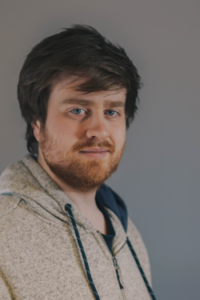 internship opportunities,
internship opportunities,
His favourite part about the internship was the breadth of work, there was never a dull moment as an intern at EDA, and there’s no hiding in a company EDA’s size.
He enjoyed being able to develop process design kits and having the chance to travel with work around Europe, to places like Budapest.
After graduating with a first class degree Henry joined EDA, his sponsor company. Starting off as a support engineer he has developed into a fully-fledged applications engineer dedicating himself to the success of customers using tools from EDA. Henry has worked at EDA for over five years.
James Mutumba – UKESF Scholar 2019
James studied at the University of Surrey and was excited to join EDA Solutions to realise his dream of working in the semiconductor industry.
His favourite part about working at EDA was gaining the invaluable industry experience with great support from other employees and management.
After finding out about the scholarship scheme from talks by scholars at his university, James told us he was honoured to give several talks of his own as a scholar to increase awareness for UKESF.
UKESF was a very important part of James’ professional journey, helping financially with a bursary from his sponsor company, providing opportunities to attend technical workshops as well as the real-world work experience during the internship year.
James joined AMD in 2022 as a design verification engineer. He’s one of a team developing wireless IP and digital front end sub-systems for AMD’s 4G and 5G communication chipsets. As a verification engineer he helps ensure their latest ASICs will work correctly once they are manufactured and deployed all over the world!
Airam Perez Guillen – UKESF Scholar 2018
Airam studied at the University of Manchester. In 2020, Airam was pipped at the post as runner up for Scholar of the Year but this was a credit to his academic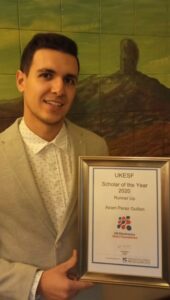 achievements and wider engagement in the field. This includes his personal commitment to inspiring the younger generation of engineers through his role as a STEM Ambassador.
achievements and wider engagement in the field. This includes his personal commitment to inspiring the younger generation of engineers through his role as a STEM Ambassador.
After receiving this award, Airam said his ambition is to keep learning, sharing and contributing to help protect the environment and the world through technology innovation.
Making the world a better place in this way is a strong motivator for Airam’s career in engineering after learning how much of a difference engineering can make for the environment.
It is evident that Airam is on track with this goal as he is now a PhD researcher at the University of Manchester, researching networks to understand, among other objectives, where more renewable energies can be deployed while at the same time limiting the impact to the stability of the electrical grid.
Herman Larsen – UKESF Scholar 2017
Herman studied at the University of York, graduating with a wealth of achievements and skills to show for it. Many of these skills developed through his 13 month internship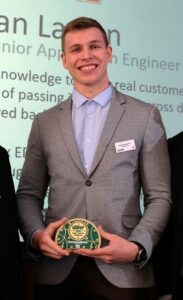 with EDA Solutions.
with EDA Solutions.
One of these achievements was recognition as one of the 2018 Electronics Weekly BrightSparks engineers. Herman received this prestigious accolade for his excellent work supporting clients for EDA. He impressed the judges with how quickly he became independent, demonstrating various distinctive attributes from an early stage. He often balanced work across various international time zones and sought out domain experts that would have otherwise not been spoken to.
Herman now works as a CMOS Image Sensor design engineer designing advanced CMOS Image Sensors (CIS) in STFC’s Technology CMOS Sensor Design Group. The image sensors designed here go out to be used in highly specialised scientific and commercial applications.
Herman utilises his interests and academic training to complete tasks to the highest standard. He relishes the challenge of technical problems and gets a real buzz from being part of technological advancement. He continues to be part of UKESF, sharing his passion to help more young people into engineering.
“UKESF is a very valued organisation to EDA Solutions. For over seven years now, UKESF has helped find high quality, very capable young engineers for our internship program. With this article, I would like to applaud Stew Edmondson and his team at UKESF who are inspiring future generations of UK electronic engineers. Perhaps more importantly, I wish to recommend more UK based engineering businesses to add their support to UKESF.’”
Paul Double, Founder and CEO, EDA Solutions

We very much welcome the publication of the Government’s long-awaited National Semiconductor Strategy. Semiconductors are critical to the functioning of our modern world, and we wholeheartedly support their aspiration for the UK to have a thriving national industry. However, a chronic skills shortage threatens our industry’s ability to compete on a global stage.
At the UKESF we believe that the lack of a secure skills pipeline is a significant threat to achieving the Government’s semiconductor ambition. Demand for graduate engineers to help companies drive forward semiconductor innovation is high and vastly outstrips supply. The only viable and sustainable way for our industry, in particular chip design, to grow is to increase the number of UK students studying Electronics at degree level. We simply need more ‘home grown’ talent.
To make this happen we need to start with schools. We need to raise awareness and increase knowledge and interest in electronics and semiconductors at secondary schools. Our programme of ‘hands on’ projects and activities shows that this is possible; however, to have more impact we need to replicate this intervention at scale. We therefore, call on Government to recognise that there needs to a greater focus on Electronics and semiconductors in secondary education and to invest in growing a national talent pool through UKESF’s proven activities.
Stew Edmondson, Chief Executive at UKESF
Find out more about our campaign here
Stew Edmondson, Chief Executive Officer at UKESF, introduces a new report, Future Engineering Skills in the Age of Artificial Intelligence, compiled following extensive industry consultation.
Our report concludes that the UK’s role in this vital multi-billion-pound global industry is being held back by a significant skills shortage.
AI systems will underpin important advances such as autonomous transportation, intelligent large-scale infrastructures and smart personalised healthcare. We are skills advocates on behalf of the UK’s semiconductor sector and our motivation for undertaking this research was to ensure the engineering and ‘systems’ aspects weren’t neglected in the ongoing discussion about AI skills.
We know that the UK Government has an aspiration to make Britain a global AI superpower. However, for the UK to grow and flourish as a centre of “AI systems” expertise, it is essential to ensure that the appropriate educational and training capabilities are in place.
“AI Systems” combine software with sophisticated electronics, pervasive connectivity, machines and physical infrastructure in order to sense, understand, act and, crucially, learn to do things better. Unfortunately, the engineering skillset for “AI Systems” is not really addressed by the Government in the current AI Strategy. As a result, employers in ‘deep tech’ have told us that they are concerned with the shortage of skills, particularly at the post-graduate level.
Therefore, there is a clear need for the UK Government to level focus on the broader AI engineering skillset required in the future, to ensure there are the AI systems graduates needed by the ‘deep tech’ sector.
“There is no doubt AI will influence engineering design and application and it is imperative that we train Engineers with deep knowledge of AI and we must take action now to ensure that future university engineering programmes and facilities provide the graduates and the expertise to lead the engineering design, management and training of the AI systems of the future.”
Professor Bashir Al-Hashimi CBE FREng, Vice Principal (Research & Innovation) at Kings’ College, London and UKESF Trustee
For the full report click here